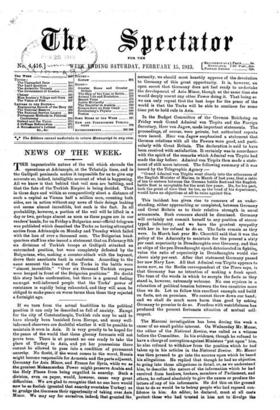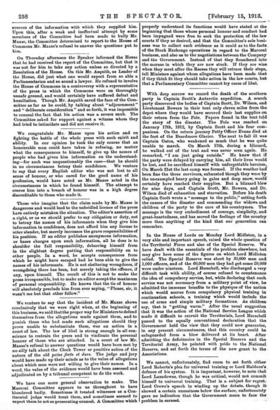The Marconi investigation has been during the week a cause
of no small public interest. On Wednesday Mr. Maxse, the editor of the National Review, was called as a witness before the Committee. In his evidence, though he refused to have a charge of corruption against Ministers "put upon" him, he also refused to withdraw from the position which he had taken up in his articles in the National Review. Mr. Maxse was then pressed to go into.the sources upon which he based his allegations. He replied that though he had no objection to going into those allegations in detail, or, as we understand him, to describe the nature of the information which he had received from bankers, brokers, members of Parliament, and others, be refused absolutely to give the names or produce the letters of any of his informants. He did this on the ground that to do so would be to betray people who had reposed con- fidenoe in him. An editor, he declared, must at all costs protect: those who .had trusted in him not to 'divulge the
sources of the information with which they supplied him. Upon this, after a weak and ineffectual attempt by some members of the Committee had been made to bully Mr. Maxse, the Committee determined to report to the House of Commons Mr. Maxse's refusal to answer the questions put to him.











































